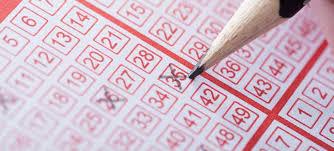Explore the World's Best Ideas
Join today and uncover 100+ curated journeys from 50+ topics. Unlock access to our mobile app with extensive features.
Lotteries
The lottery is cheap permission to dream about the possibility of a better life. Most players know they won't win.
People without lots of money are more likely to participate in lotteries. On average, households that make less than $12,400 a year spend 5 % of their income on state lotteries, making it a deeply regressive tax.
56
394 reads
More likely to buy tickets
In an experiment, low-income participants were more likely to purchase lottery tickets when they felt that their income was low compared to a perceived standard.
49
320 reads
The loop
Government-run lotteries appeal to poor people. This causes them to spend a disproportionate amount of their income on lotteries, which contributes to them being poor, which keeps them buying tickets.
52
274 reads
Changing the lottery system
There is clearly a demand for playing the lottery. But low-income people spend more of their income on the lottery than other income groups.
- A solution would be to stop marketing and advertising lotteries that target the poor.
- States could promote and offer more games that appeal to wealthier players.
- Financial institutions could issue investment instruments that have lottery-like qualities.
51
300 reads
IDEAS CURATED BY
Aubrey 's ideas are part of this journey:
Learn more about moneyandinvestments with this collection
The power of gratitude and positive thinking
Ways to improve your mood
Simple daily habits for a happier life
Related collections
Similar ideas
Read & Learn
20x Faster
without
deepstash
with
deepstash
with
deepstash
Personalized microlearning
—
100+ Learning Journeys
—
Access to 200,000+ ideas
—
Access to the mobile app
—
Unlimited idea saving
—
—
Unlimited history
—
—
Unlimited listening to ideas
—
—
Downloading & offline access
—
—
Supercharge your mind with one idea per day
Enter your email and spend 1 minute every day to learn something new.
I agree to receive email updates

